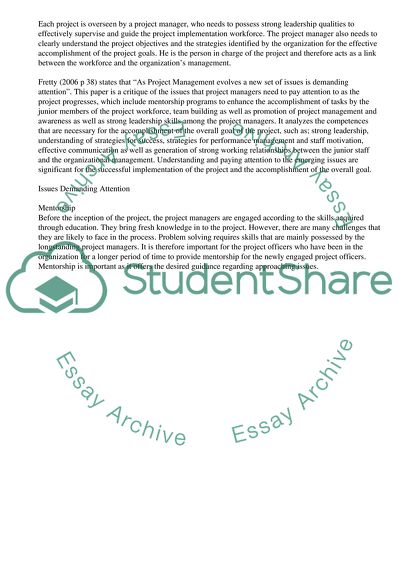Cite this document
(Mentorship and Coaching as Ways of Knowledge Transfer in the Process o Literature review, n.d.)
Mentorship and Coaching as Ways of Knowledge Transfer in the Process o Literature review. Retrieved from https://studentshare.org/management/1560948-as-project-management-evolves-a-new-set-of-issues-is-demanding-attention
Mentorship and Coaching as Ways of Knowledge Transfer in the Process o Literature review. Retrieved from https://studentshare.org/management/1560948-as-project-management-evolves-a-new-set-of-issues-is-demanding-attention
(Mentorship and Coaching As Ways of Knowledge Transfer in the Process O Literature Review)
Mentorship and Coaching As Ways of Knowledge Transfer in the Process O Literature Review. https://studentshare.org/management/1560948-as-project-management-evolves-a-new-set-of-issues-is-demanding-attention.
Mentorship and Coaching As Ways of Knowledge Transfer in the Process O Literature Review. https://studentshare.org/management/1560948-as-project-management-evolves-a-new-set-of-issues-is-demanding-attention.
“Mentorship and Coaching As Ways of Knowledge Transfer in the Process O Literature Review”, n.d. https://studentshare.org/management/1560948-as-project-management-evolves-a-new-set-of-issues-is-demanding-attention.


